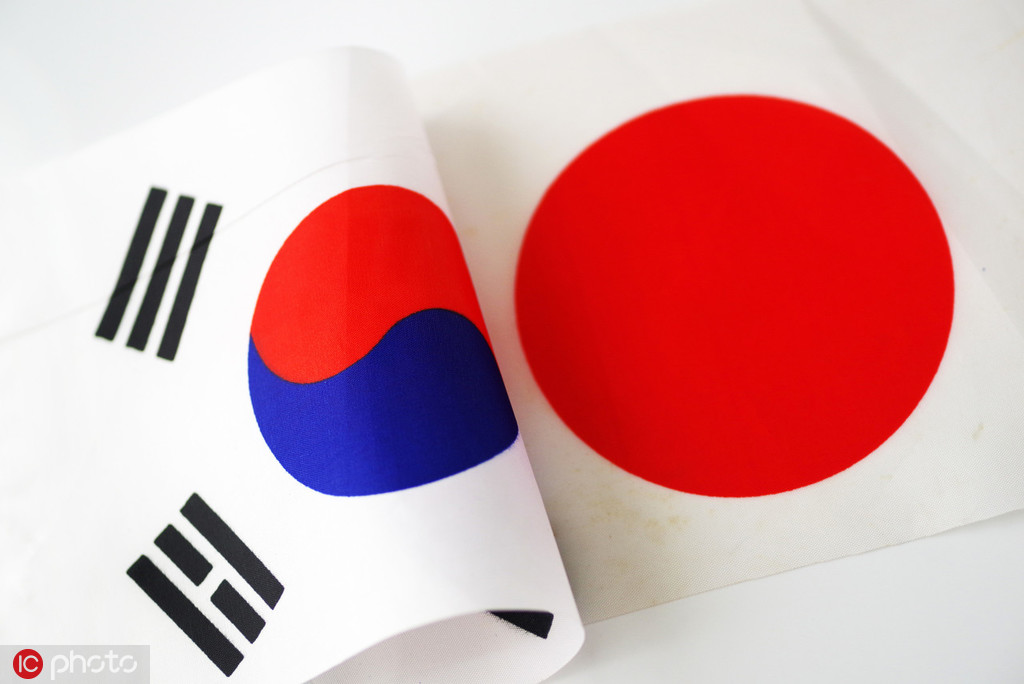Political row with S. Korea starts to hurt Japan
China Daily Global | Updated: 2019-09-10 10:31

TOKYO - Japan's surplus in spending by overseas visitors declined in July from a year earlier as the numbers from South Korea tumbled, a sign the souring bilateral relations are taking a toll on the world's third largest economy.
The travel account surplus-or the amount spent in Japan by foreign visitors minus that by Japanese traveling overseas shrank 0.9 percent in July from a year earlier to 229.3 billion yen ($2.1 billion), current account data by the Japanese Ministry of Finance showed on Monday.
Japan removed South Korea last month from its whitelist of trusted trading partners, which are given preferential export procedures. In response, Seoul dropped Tokyo off its whitelist of trusted export partners.
Japan's decision has prompted a backlash in South Korea, with consumers boycotting Japanese goods and canceling tours to the neighboring country.
In July, the number of South Korea visitors dropped by 7.6 percent from a year earlier-and was the lowest in nearly a year, according to Japanese government data.
Such a drop is "certainly a factor" in the travel services account, a Japanese Finance Ministry official said. "We are monitoring developments."
The decline in the travel account surplus contributed to a 32 percent rise in Japan's service account deficit, the data showed.
As a result, Japan's overall current account surplus fell 1.4 percent in the year to July to 1.9999 trillion yen ($18.7 billion), largely in line with economists' median forecast for a surplus of 2.0832 trillion yen.
The drop in South Korean tourists is a blow to Japanese Prime Minister Shinzo Abe's plan to make inbound tourism a pillar of Japan's economic growth, and comes at a time the export-reliant recovery has been hit by slowing global demand and the trade dispute between the United States and China.
Since Abe took office in late 2012, foreign visitors to Japan have more than tripled to 30 million people as of 2018, helped by a weaker yen and easing of visa requirements.
Abe's government set a target to increase the number of foreign visitors to 40 million by 2020 and 60 million by 2030.
South Koreans account for the second largest chunk of visitors to Japan, numbering around 7.1 million in 2017. Next were Chinese at 7.4 million, according to government data.
In the balance of payment data since 1996, travel accounts are included in service accounts, which cover transactions for tourism and logistics with other countries.
The travel account surplus rose 3 percent, to a record 1.3 trillion yen, from January to June compared to the same period a year earlier, helping the service account balance swing to a surplus for the first time.
Japan's current account surplus mainly consists of income gains from foreign direct investments, and services including money spent by overseas travelers, while the trade balance tends to log deficits due to trade frictions and weak global demand.
Reuters - Xinhua
























